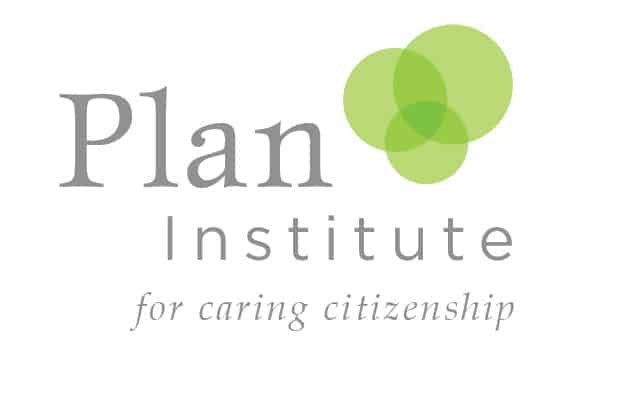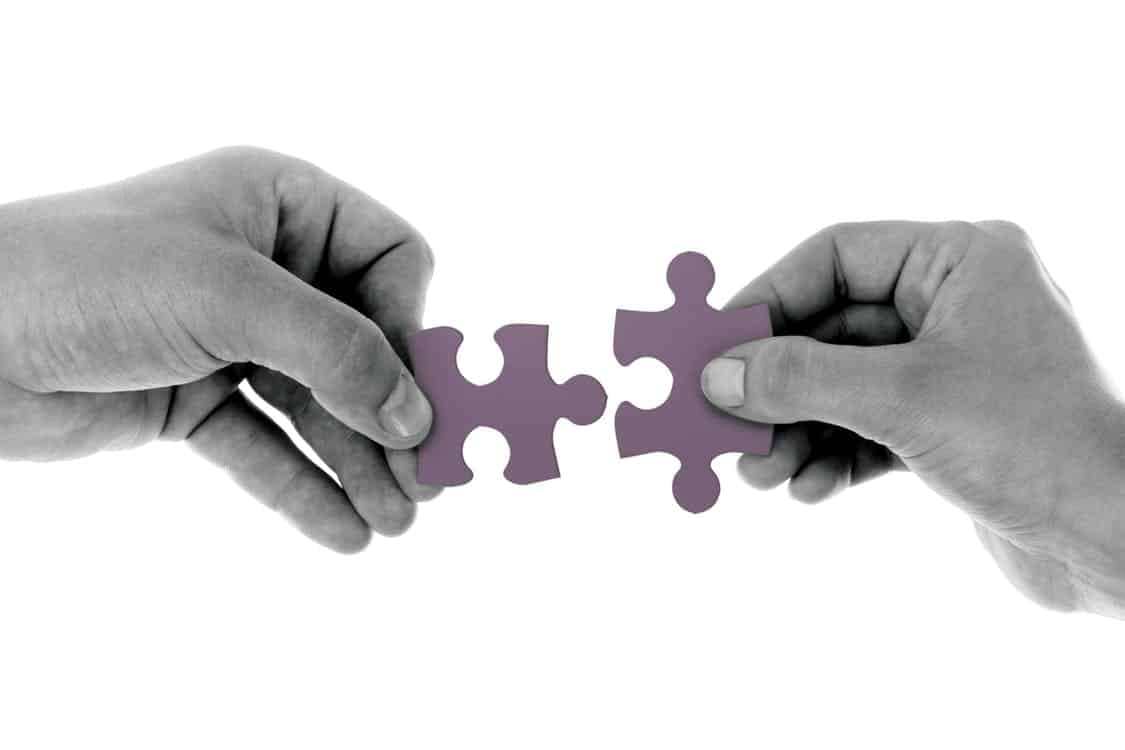From over 25 years of working with families who have a loved-one with a disability, we have come to realize just how important it is to have a future plan in place. A future plan not only helps to prepare us for the future but also gives families peace of mind in the present. But what does a future plan look like? Here we’ve broken it down into five sections that we have discovered allow for our loved-ones with disabilities to lead a good life.
1. Relationships and Personal Support Networks
We have always known that relationships are important, but in recent years a great amount of research has been emerging on just how crucial our connectedness to one another actually is and how it impacts our health and emotional well-being.
For people living with disabilities this can be even more critical. For those who are socially isolated due to mobility issues, economic situation, lack of transportation, or health, it can be challenging to get out and make friends and nourish existing relationships. Having a network of caring relationships around someone with a disability can help to ensure connection and belonging, as well as to ensure they are safe and secure.
At PLAN and Plan Institute we are believers in Personal Support Networks. The difference between this and a normal social network is that with Personal Support Networks people are invited to play important and specific roles in your loved-one’s life: this can include anything from calling them once a week to check in, supporting them with their grocery shopping, or attending social gatherings. The benefit of having an official PSN is that your loved-one will feel safe and secure in their community and will give you, the caregiver, peace of mind knowing that they are being supported.
Relationships not only offer us safety and security but they also bring meaning and joy to our lives. We encourage families to think about this important step when planning their loved-one’s future and present.
Here’s a helpful worksheet on relationships to help you with your planning.
For more information on Personal Support Networks, click here.
2. Contribution
One of the greatest barriers people living with disabilities face is garnering recognition for their contributions. Both the isolation that many people with disabilities face and societies’ narrow view of what equates as contribution, are part of the problem.
Two key ways that contributions are made: Contributions of Doing; Contributions of Being
Contribution of Doing: These are the action-oriented contributions we are most familiar with such as volunteering and working.
Contribution of Being: These are contributions made by the majesty of our relative’s presence. Being present is an important way for our family members to make their contribution. Our relatives offer grace, caring, attentiveness, wonder, acceptance, silence, receptivity, compassion, inspiration, pleasure, gratitude, loyalty and friendship. These gifts—often overlooked in our society—are critical to society’s well-being. In fact, they are a necessary antidote to “too much doing.”
Identifying the gifts and contributions of our relatives leads to meaningful relationships.
Here is a helpful worksheet to help you to identify the contributions your loved-one makes or could be making.
3. A Place to Call Home
A home of one’s own: This is the universal dream, occupying a powerful place in our individual and collective psyche. Home is where we can just be, where we become, where we belong. Home is not a program or a service—it is our haven and sanctuary, whether it be owned or rented.
Isn’t that the kind of place we want for our friends and family members with disabilities?
Some of our sons and daughters will want to have their own place, while others will want to live with people they know and like. Some will need very little staff support, while others will need intensive 24-hour care. Whatever your loved-one’s situation, it is important to first determine what they need and want. Once this sense of home has been clarified, you can examine the type of tenure and other technical details that best suit your relative.
Due to the high price for real estate in some of our cities these days, many people are getting creative with housing. Here are some alternatives to the usual home options:
- Housing cooperatives and land trusts, which have similar advantages to home ownership.
- Home sharing is an option to live together with a family.
- Rental options can provide more flexibility to try different living arrangements, particularly when first leaving home.
- Co-ops and co-housings can bring a close sense of community that allow residents to feel more secure.
Here’s a helpful worksheet on housing to help you with your planning.
4. Empowered Decision Making
When our children are young, we make the important decisions on their behalf. When they reach the often complex and challenging time of adolescence, however, it is necessary to start thinking about meaningful ways to include them in the decisions that will impact their future lives. Being aware of, and implementing, sound decision-making practices now will create an important strand to your relative’s safety net as they make the transition from childhood to adulthood.
Fortunately, some provinces have legal options that enable our adult family members to get the support they need to make good and safe decisions without taking away their decision-making power which strips them of their rights as citizens. See this chart from Nidus to see the legal option in your province.
In British Columbia, we developed a legal option called Representation Agreements, an alternative to adult guardianship. To learn more about this and see how it can help your family, click here.
If you reside in BC, and a representation agreement is right for you, use this worksheet to help you organize your supported decision-making choices.
5. Financial Security
Financial security is a priority for every family, but for those of us with sons or daughters who have disabilities, this part of future planning is much more nuanced and critical.
Many people living with disabilities live on low-incomes with limits to gifts, income and assets, so we must take care to plan and talk with someone who understands disability law so that these benefits are not affected.
It is important to use a variety of financial planning options and we advise that people consult professionals on these topics.
Will & Estate Planning
This is one of those dreaded tasks that no one like to do. But we all MUST do it as all of us are going to pass away at some point and it is important for YOU to decide what will happen to your money and belongings after you are gone. Far too many people pass away without having a will in place or one that is out of date, and this can result in leaving it in the government’s hands to decide how your estate is distributed.
For many individuals, the initial steps in developing a will and estate plan can be overwhelming and intimidating. However, for individuals with children with disabilities, there are many additional challenges. A significant one being: how to leave an inheritance within the will without impacting the entitlement to provincial disability benefits. We strongly recommend that you talk to someone who has experience with disability estate planning.
Here is a worksheet that will help you to compile information to take to a lawyer and make you aware of decisions that will need to be made.
If you are in BC, Plan Institute offers Will, Trust & Estate Planning workshops in Vancouver, and a Webinar for those throughout the rest of the province. And here is a lawyer list to help you find a lawyer who understands disability law.
Trusts
Many parents choose to set up either a discretionary or non-discretionary trust for their son or daughter. In many cases, trusts are not considered assets for the beneficiary, which makes this a good option in locations where other benefits could be clawed back otherwise.
For adult children with disabilities that do not have the ability to manage an inheritance, this routinely results in the need for the development of a fully discretionary trust (sometimes called a “Henson Trust”) written within the parents’ or caregivers’ will. A non-discretionary trust, on the other hand, means that the beneficiary of the trust has or had some control over the assets in the trust.
A trust is a relationship whereby someone, the Trustee, holds money or other assets for the benefit of someone else, the Beneficiary. The Beneficiary in this case is the person with a disability. The Trustee’s job is to manage the money or other assets for the Beneficiary, including investing, filing tax returns, keeping financial records, exercising trustee discretion, etc.
It is very important to choose the right Trustee, someone who will most likely out live you and someone that you deeply trust. Here is a good blog post on choosing the right Trustee.
Registered Disability Savings Plan (RDSP)
The RDSP is a powerful tool for securing the financial well-being of your relative. Anyone can contribute to an RDSP and the funds grow tax-deferred. In many situations, the federal government will assist by matching your contributions. The RDSP will not affect provincial disability benefits.
To find out more about the RDSP go to rdsp.com. Plan Institute also holds workshops and tele-seminars on the RDSP. Click here for dates and registration.
More Resources:
To learn more about future planning and succession planning, we have several options to assist you along the way.
Safe and Secure: Seven Steps on the Path to a Good Life for People with Disabilities
A free inspirational guidebook for parents and other family members who are concerned about the future of their relative with a disability, which includes all the topics above and more.
*Also available in Korean
Future Planning Tool
Build a plan for you or anyone with a disability.
Facing the Future Together Workshop
This workshop will help families to plan for the future and start the conversation between current and future caregiving generations.
Plan Institute Workshops
Click above to see all of the learning opportunities offered by Plan Institute.

